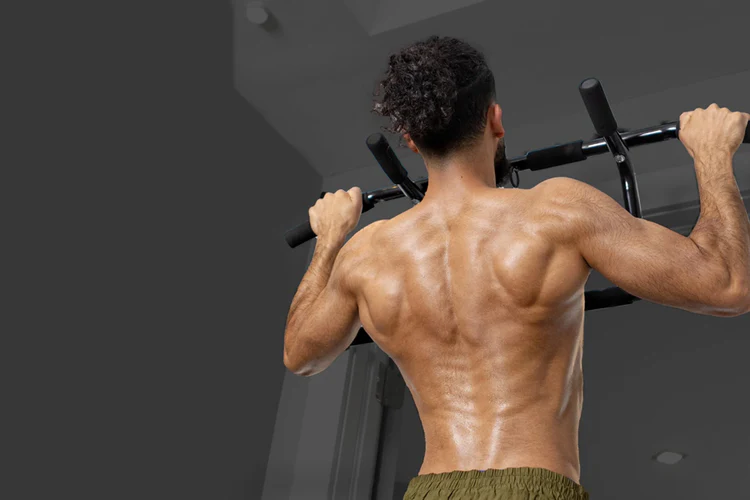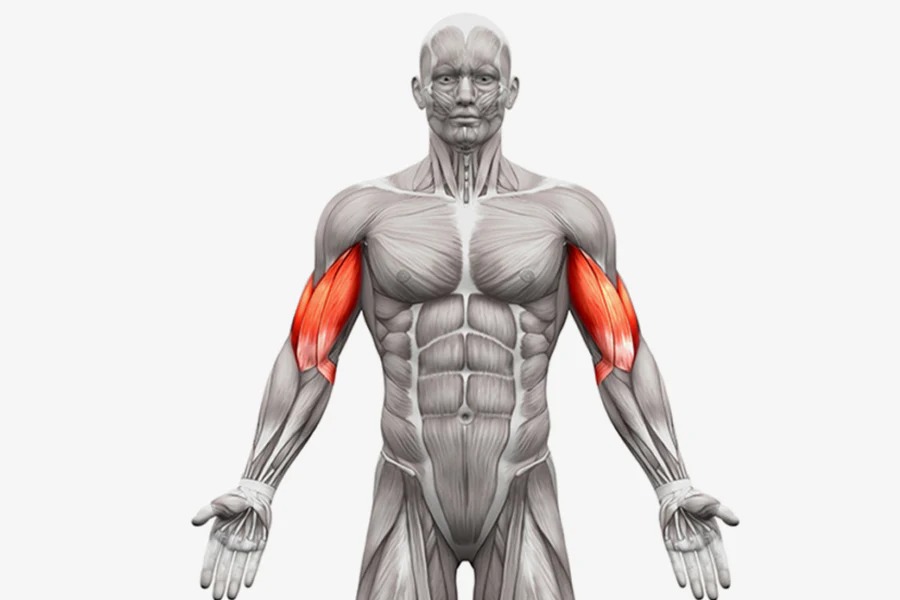Can A Simple Doorway Pull-Up Bar Really Build Significant Muscle?
A doorway pull-up bar is a versatile tool that can effectively build muscle across multiple upper body muscle groups. Here's a comprehensive breakdown of the muscles you can target and develop:
Back Muscles
- Latissimus dorsi (lats): Wide grip pull-ups build back width and thickness
- Trapezius and rhomboids: Stabilize shoulder blades and improve posture
- Teres major and infraspinatus: Assist shoulder rotation and stability

Man doing pull-up on doorway bar
Biceps
- Biceps brachii: Heavily engaged during chin-ups and close grip variations
- Brachialis and brachioradialis: Support elbow flexion and grip strength

Anatomical figure showing highlighted biceps muscles
Shoulders
- Deltoids (rear, lateral, anterior): Stabilize and control movement
- Rotator cuff muscles: Support shoulder joint stability
- Benefits include improved mobility and reduced injury risk
Chest
- Can be targeted by using the bar on the floor for push-up variations
- Increases range of motion and reduces wrist strain
- Engages pectoralis major and minor effectively
Core Muscles
- Rectus abdominis and obliques: Stabilize torso and prevent swinging
- Lower back muscles: Maintain proper spinal alignment
- Essential for controlled, efficient movements
To maximize muscle growth:
- Maintain proper form
- Progressively increase difficulty
- Incorporate various grip positions
- Focus on controlled movements
- Train consistently
The pull-up bar alone can deliver significant muscle gains when used correctly and consistently. Key to success is proper technique, progressive overload, and regular training.
[Images and remaining content position maintained as in original, formatted for clarity and conciseness]
